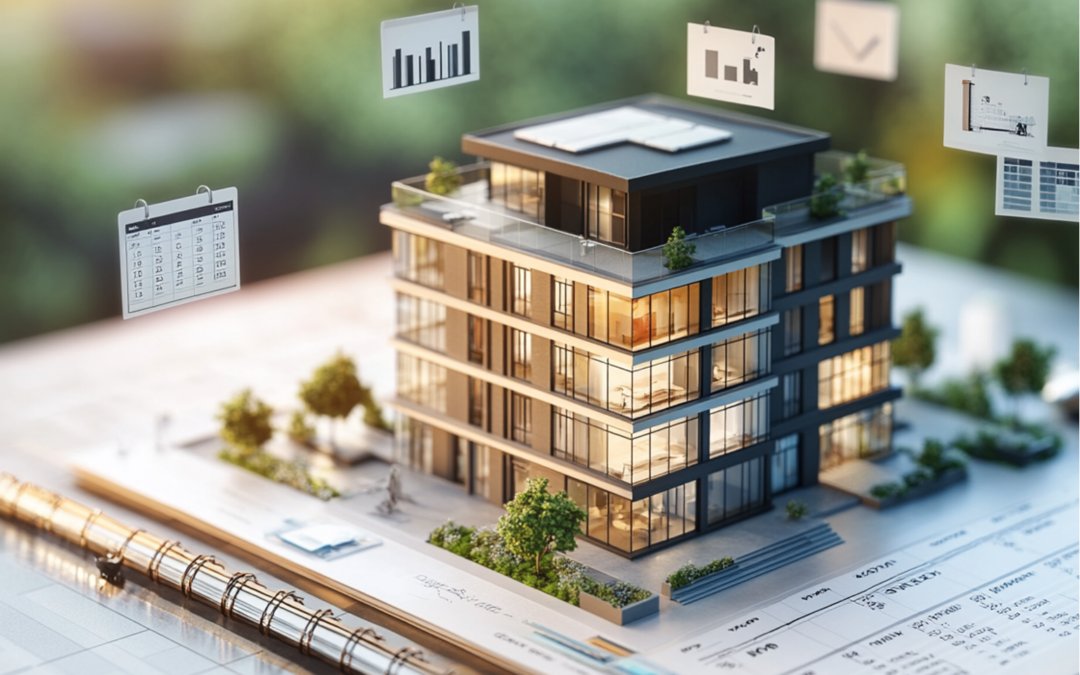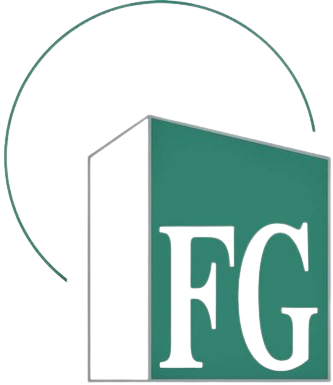Important changes for apartment owners in 2025
The year 2025 will bring numerous legal changes and new deadlines for homeowners in Germany. In order to be optimally prepared and take advantage of potential financial benefits, it is crucial to familiarize yourself with these changes at an early stage. This article provides you with a structured overview of the most important changes and recommendations for the coming year.
Extended income tax exemption for photovoltaic systems from 2025
From January 1, 2025, homeowners will benefit from an extended income tax exemption for photovoltaic systems. The permissible gross output for tax-free systems will be increased from the previous 15 kilowatts peak (kW peak) to 30 kW peak per residential or commercial unit. This regulation applies to systems that are acquired, commissioned or expanded after December 31, 2024.
It is important to note that this is an exemption limit and not an allowance. This means that if the limit of 30 kW peak is exceeded, the entire system is subject to taxation. Owners should therefore plan carefully and check whether their planned system remains within the exemption limit in order to benefit from the tax exemption.
This adjustment offers homeowners an incentive to invest in larger photovoltaic systems and thus make a contribution to sustainable energy production. It is advisable to seek tax advice before installing such a system in order to be fully aware of the individual benefits and possible obligations.
Property tax reform: new calculation bases from 2025
From January 1, 2025, the reform of property tax will come into force in Germany, which will entail a recalculation of the tax amounts for property owners. The aim of this reform is to ensure a fairer and more up-to-date valuation of land and property.
What is changing?
– New calculation bases: The previous standard valuation will be replaced by a new valuation method that takes into account the current value of land and properties. This leads to an adjustment of the property tax amounts, which can vary depending on the location and value of the property.
– Different models in the federal states: Some federal states have introduced their own calculation models that deviate from the nationwide regulation. The effects of the reform may therefore vary from region to region.
Recommendations for apartment owners
– Checking the new notices: From 2025, property owners will receive new property tax notices. It is important to check these carefully to ensure that the calculations are correct.
– Appeal in the event of discrepancies: If you discover discrepancies or errors in your decision, you have the option of lodging an appeal within a certain period of time. It is advisable to seek legal advice if necessary in order to protect your interests.
The aim of the property tax reform is to achieve a fairer distribution of the tax burden. Nevertheless, there may be changes in the amount of property tax payable for individual owners. It is therefore essential to familiarize yourself with the new regulations at an early stage and to examine the notices carefully.
Introduction of mandatory e-invoicing for landlords from 2025
From January 1, 2025, all landlords in Germany will be obliged to be able to receive and process electronic invoices (e-invoices). This regulation applies regardless of whether the rental is subject to VAT or not, as landlords are considered entrepreneurs in accordance with Section 2 of the German Value Added Tax Act (UStG).
What is an e-bill?
An e-invoice is a structured electronic document that can be analyzed by machine. In contrast to simple PDF files, which are merely digital images of paper invoices, e-invoices contain data in formats such as XRechnung or ZUGFeRD. These formats enable automated processing and archiving.
Obligations for landlords
– Receipt of e-invoices: Landlords must ensure that they are able to receive and process e-invoices from January 1, 2025. Internet access and a suitable email inbox are required for this. It is important that the e-invoices received are stored in an unaltered, audit-proof and machine-readable format.
– Issuing e-invoices: Landlords who rent out commercial space to companies and make use of the option for tax liability in accordance with Section 9 UStG are also obliged to issue e-invoices. Transitional periods until the end of 2026 apply to the issuing of e-invoices, provided the recipient agrees.
Exceptions
There are certain exceptions to the e-invoicing obligation:
– Invoices for small amounts: Invoices with a maximum gross amount of 250 euros can still be sent in conventional formats.
– Services to private individuals: The e-invoicing obligation does not apply to invoices to private end consumers.
Recommendations for landlords
– Technical preparation: Make sure that your IT infrastructure is suitable for receiving and processing e-invoices. If necessary, you should consider specialized software solutions.
– Training: Inform yourself and your employees about the new requirements and train them in handling e-invoices.
– Communication with business partners: Let your business partners know that you will be able to receive e-invoices from January 1, 2025, and clarify the preferred formats and transmission channels.
The introduction of mandatory e-invoicing aims to reduce bureaucratic hurdles and digitize the invoicing process. By preparing early, landlords can ensure a smooth transition and benefit from the advantages of electronic invoicing.
Digitalization of owners’ meetings: Virtual meetings possible from 2025
With the amendment to the law that came into force on October 17, 2024, condominium owners’ associations (WEGs) can now hold their meetings completely virtually. This innovation offers a flexible alternative to traditional face-to-face meetings and can significantly reduce administrative costs.
Legal basis
– Resolution: The introduction of a virtual owners’ meeting requires a resolution with at least three quarters of the votes cast. This resolution is limited to a maximum period of three years.
– Transitional provision: For resolutions passed before January 1, 2028, an in-person meeting must be held at least once a year up to and including 2028, unless the owners unanimously waive this requirement.
Advantages of virtual meetings
– Time and cost savings: The elimination of travel and room rental reduces both the effort and the costs for everyone involved.
– Increased participation: Owners can participate in meetings regardless of their location, which is particularly beneficial for people with limited mobility or who live further away.
– Increased efficiency: Digital tools enable structured moderation and facilitate documentation and coordination processes.
Technical requirements
– Stable Internet connection: A reliable connection is essential for participating in virtual meetings.
– Suitable hardware: Computer or mobile devices with camera and microphone are required.
– Secure software solutions: The use of data protection-compliant video conferencing platforms ensures the security of the meeting.
Recommendations for condominium owners’ associations
– Check the community regulations: Make sure that your community regulations provide for the holding of virtual meetings and adapt them if necessary.
– Technical training: Provide training for owners to facilitate the use of the software used and enable smooth participation.
– Observe data protection: Ensure compliance with the General Data Protection Regulation (GDPR) when planning and holding virtual meetings.
The possibility of holding owners’ meetings virtually represents a significant step towards the digitalization and flexibilization of condominium management. With careful planning and preparation, condominium owners’ associations can benefit from the advantages of this modern form of meeting.
Well prepared for the year 2025
Finally, it is essential for condominium owners to familiarize themselves with the upcoming legal changes at an early stage. A proactive approach to the new regulations makes it possible to take measures in good time and make the most of the benefits of the changes. If you are unsure, it is advisable to seek professional advice in order to clarify individual questions and be well prepared for the year 2025.
FG Fröhlich Gottas Hausverwaltung GmbH – Your property, our priority
The all-round carefree package from FG Fröhlich & Gottas Hausverwaltung offers numerous advantages for owners and tenants. The cooperation with reliable and specialized service providers in the areas of building services, locksmiths, carpenters and roofers guarantees comprehensive support. The strong network of FG Fröhlich & Gottas Hausverwaltung ensures that all work is carried out professionally and promptly. This leads to a high level of satisfaction, long-term value retention and improved living comfort.
Are you looking for a competent and reliable condominium and rental management company in Leipzig? FG Fröhlich & Gottas Hausverwaltung GmbH is at your side with a comprehensive range of services. From commercial to technical management – find out all about our services and how we can successfully manage your property. Contact us now to find out more about our services. We look forward to hearing from you and finding the best solution for your property management together!

